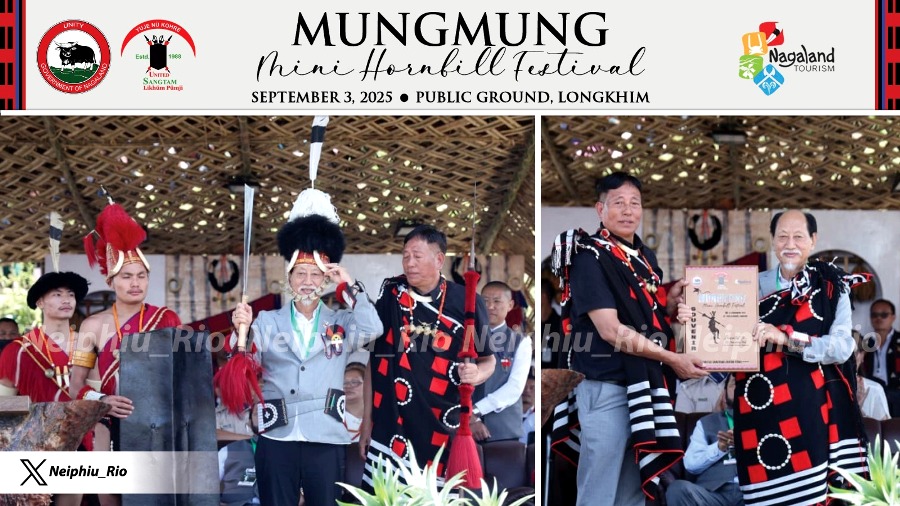CM Rio calls for preserving Naga culture at Mungmung-cum-Mini Hornbill Festival in Tuensang on Wednesday.
Share

DIMAPUR — Chief Minister Neiphiu Rio on Wednesday graced the Mungmung-cum-Mini Hornbill Festival at Longkhim local ground in Tuensang district as the special guest and urged Nagas to preserve and promote their rich cultural heritage.
According to a DIPR update, Rio reminded the gathering of the state government’s continuous efforts to promote traditional values and culture through events such as the Hornbill Festival, Mini Hornbill Festivals, and various road shows.
He described festivals as more than occasions of celebration, calling them platforms for reconciliation, unity, and spiritual renewal.
Reflecting on the wisdom of the forefathers, the chief minister said that their resilience and hard work were vital lessons for today’s generation. He encouraged the community to uphold ancestral practices for sustainable livelihoods and bountiful harvests.
“He also touched upon the current status of the Eastern Nagaland People's Organisation (ENPO) and their demand regarding the Frontier Nagaland Territory (FNT), urging understanding and dialogue,” it stated.
Also read: PAC endorses Ungma Statement, calls for unity in Naga peace process
Nagaland explores collaboration at roundtable with Indian Foreign Service Officers
Advisor for IT & Communication, Economics & Statistics, and Evolution, H Sethrongkyu Sangtam, speaking on behalf of the host, highlighted the cultural and unifying significance of the festival and called upon people to uphold its spirit of unity and progress.
Short addresses were also delivered by ENPO president A Chingmak and Sumi Hoho president Dr. Vihoto, both emphasising solidarity and cultural pride.
Liodong of Phir Ahi Village elaborated on the significance of the Mungmung festival.
The event featured colourful traditional performances, including male folk dances from Phir Ahi, Chimonger, Chungtor, Tronger, and Tsungti Mulong Singrep villages, and female dances from Kiding, Angangba, Tsaru, and Holongba villages.
Demonstrations of traditional games such as fire-making and top-spinning were also held.
A special song, Oh Mungmung, performed by Shujingla Thonger and Kohjungli Jingru, added a melodic touch, while earlier performances included log drum beating by Angangba youths and cotton spinning by Chimonger women.